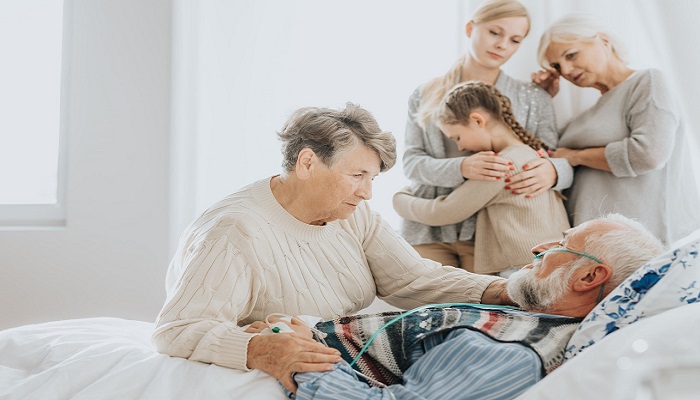When a death occurs in care facilities, the emotional toll on residents, families, and staff can be profound. Yet, amidst this distress, these living facilities need to follow essential procedures to ensure the dignity of the deceased and compliance with legal requirements.
This article provides seven critical steps to take when handling a lost loved one in your care facility. Read on to learn how to navigate these challenging moments with compassion and professionalism!
Confirm Death and Manage the Scene
The first crucial procedure for nursing home deaths is confirming death and managing the scene. When you find someone unresponsive, act quickly. Check for vital signs first. Only a doctor or nurse can officially declare death, so don’t jump to conclusions. After confirmation, record everything carefully.
In cases where the death appears to have been unattended for some time, secure the area immediately to prevent unauthorized access. Assess for any biohazard risks due to bodily fluids or decomposition.
If such risks are present, initiate biohazard protocols and contact unattended death cleanup services. If staff must enter the area before professionals arrive, ensure they wear appropriate personal protective equipment.
Keep detailed records throughout this process. Write down every step you take from the moment you suspect something’s wrong. This helps with legal matters and paperwork later.
Remember, handling these situations with care and respect is crucial. Your quick thinking and attention to detail can make challenging times easier for everyone involved.
Notify Key Personnel
After confirming the death, make sure to inform key staff members within your facility. This usually includes:
- The facility administrator or director
- The resident’s primary care physician
- The nursing supervisor
- The social service department
Why is this crucial? Each of these individuals has specific responsibilities in the aftermath of a resident’s death. The sooner they know, the quicker they can start their necessary procedures. Clear communication ensures everything runs smoothly during this tough time.
Contact the Family
When a loved one passes away, sharing the news with their family is a delicate task. Try to meet in person if possible. If you can’t, a phone call is the next best option. Always avoid texting or emailing such sensitive information.
As you speak with the family, approach the conversation with compassion and empathy. Be clear about what happened, but gentle in your delivery. The family may have many questions, so be patient and prepared to answer as best as you can.
Offer support resources, like grief counseling, to help them through this difficult time. Discuss the next steps, such as viewing their loved one and collecting personal belongings.
Note that your words and manner can greatly impact the family’s grieving process. A thoughtful, caring approach can provide the comfort and reassurance the family needs.
Respect Cultural and Religious Practices
Different cultures and religions have varying practices surrounding death. It’s crucial to be aware of and respect these customs. If you need clarification on a resident’s preferences, check their file for any advance directives or speak with their family.
Some considerations might include the following:
- Specific positioning of the body
- Rituals or prayers to perform
- Restrictions on who can handle the body
- Time-sensitive practices that need to be carried out quickly after death
By respecting these practices, you show that you care. Such small gestures can mean a lot to grieving families, and your thoughtfulness can bring comfort when it’s needed most.
Manage the Deceased’s Belongings
Handle the deceased’s belongings with care and attention. Start by collecting everything from their room, the facility safe, and their medication. Make a detailed list as you go.
Keep all items secure until the family or legal representative can pick them up. This might include cherished photos, favorite books, or personal mementos. Each item, no matter how small, could hold special meaning.
When the family comes to collect, request them to sign your inventory list. This step protects everyone involved and ensures you don’t overlook anything. Your thoughtfulness in this process can bring comfort when it’s needed most.
Handle Required Paperwork
As you manage a resident’s passing, keep your facility’s legal duties in mind. Proper care and thorough documentation are more than just good practices; they’re crucial for ensuring legal accountability for public health and preventing wrongful death claims.
Follow all care protocols carefully and maintain detailed death data. This includes medical logs, long-term care plans, and incident reports. If you suspect any neglect or malpractice, report it to the proper authority right away.
By upholding high care standards and keeping detailed records, you’re protecting your nursing homes legally and ensuring your team provides high care quality to all nursing home residents. You also preserve dignity and trust in your community.
Provide Support for Other Residents and Staff
Losing a member of your assisted living community impacts everyone. Break the news gently to other long-term care facility residents, as they may have lost a dear friend. Be ready for a range of emotions and offer support.
Your staff members will also need care. They often form close bonds with residents and may be struggling with grief. Consider providing counseling services for both residents and personnel. It’s a thoughtful step that can make a world of difference.
A memorial service can be a healing experience. It gives everyone a chance to share memories and support each other. In the days following, stay attuned to the emotional climate of your facility.
Conclusion

Handling deaths in assisted living facilities requires a delicate balance of compassion and professionalism. By following these seven essential procedures, you can navigate these challenging moments with care and efficiency. Remember that each step plays a crucial role in honoring the deceased and comforting those left behind. Your thoughtful approach can bring comfort to families, reassurance to other residents, and support to your staff. In the end, how you handle these sensitive situations reflects the core values of your care facility and the respect you have for those in your care.


















